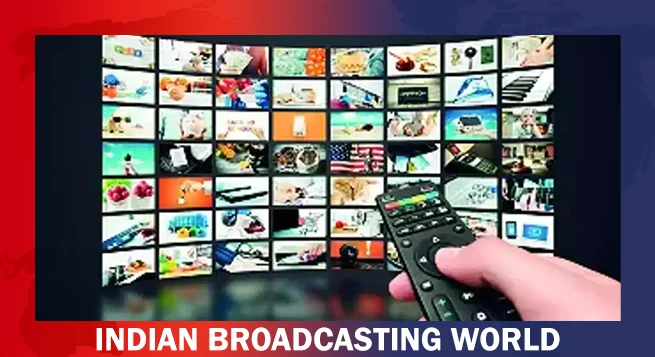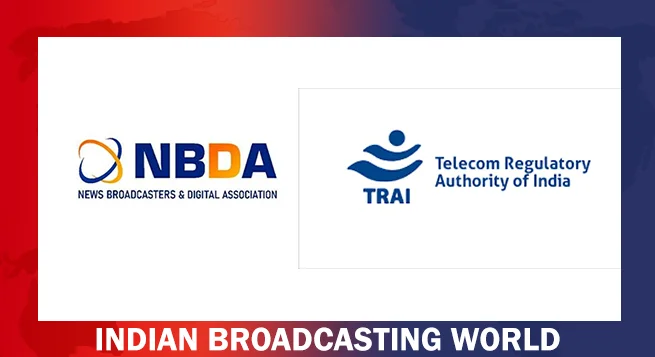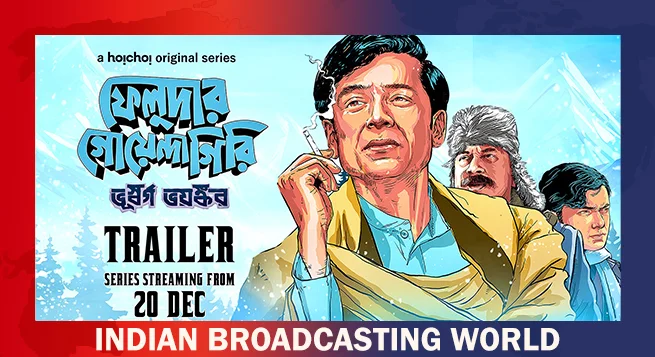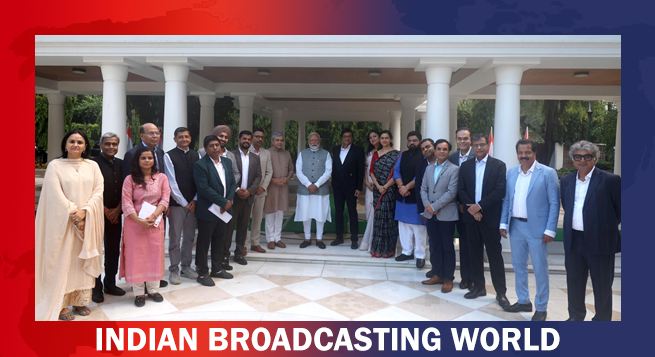A delegation of the News Broadcasters Federation (NBF), an industry body of TV news channels, met Prime Minister Narendra Modi yesterday and discussed a host of issues.
According to some people who attended the meeting, the NBF delegation raised, amongst others, the issues of DD FreeDish slot auctions, the downside of having singular audience rating system (BARC India) and connected TVs or CTVs, which have now started bundling news content in India.
The PM was more in listening mode, according to the sources, but assured the delegations that the government would look into their concerns soon.
Meanwhile, a press note released by the NBF said the meeting with the PM focused on to issues within the Indian broadcast news media.
The meeting, held on Thursday at the Prime Minister’s residence at 7 Lok Kalyan Marg, New Delhi, was also attended by Union Minister for Information and Broadcasting Ashwini Vaishnaw.
The pan-India delegation, led by the Republic TV’s Arnab Goswami, included representatives from the most prominent regional and national broadcast news entities. The discussion with the Prime Minister revolved around the evolving nature of the news media industry and its critical role in upholding democratic values. Goswami highlighted the necessity for the industry to adapt to technological advancements and digitization trends, stressing that the broadcast news sector must be agile and innovative to remain relevant in a digital-first world.
The delegation emphasized the importance of maintaining editorial independence, high-quality journalism, and robust news standards, which they believe are crucial to preserving the democratic fabric of India. The NBF outlined a path for industry growth that aligns with national interests, advocating for the creation of a conducive regulatory and policy environment to support independent news broadcasters.
The NBF delegation detailed the challenges that independent news broadcasters face, including competition from digital platforms, regulatory constraints, and the need for investments in technology and infrastructure. They underscored the need for government support to help news broadcasters harness the power of emerging technologies, such as artificial intelligence and data analytics, to enhance their operations, reach, and engagement with audiences.
Prime Minister Modi, known for his keen interest in the media and digital sectors, listened attentively as the delegation presented their suggestions for the future of Indian broadcast news. The discussion also touched upon the broader socio-political context in which the news media operates, with the NBF expressing its commitment to being a responsible and constructive partner in the nation’s development journey.

Before meeting with the Prime Minister, the NBF delegation also had a detailed briefing with Union Information and Broadcasting Minister Ashwini Vaishnaw. This preparatory session allowed the delegation to outline the specific regulatory challenges faced by independent Indian news broadcasters, from content regulation to the need for financial and operational support in the digital era.
Vaishnaw, known for his proactive stance on media and communication policies, engaged with the delegation on various aspects of the broadcasting ecosystem. The discussion covered the importance of regulatory reforms that can provide a level playing field for all players, encouraging both innovation and competition.
The NBF delegation included a wide array of senior leaders from across the news industry, reflecting the diverse nature of the broadcast news sector in India. Among the participants were Barun Das, MD & CEO of TV9 Group; Riniki Bhuyan Sarma, Chairperson and Managing Director of Pride East Entertainments; Kartikeya Sharma, Founder of ITV Network; Jagi Mangat Panda, Co-Founder & MD of Odisha Television Network Ltd (OTV); and Shankar Bala, CEO of Fourth Dimension Media Solutions Pvt Ltd.
Other notable figures included Sanjive Narain, Founder of Prag News; Sreekandan Nair, Managing Director of Insight Media City; Manoj Gairola, Editor-in-Chief of News Nation Network; Suresh Goel, Chairman of IBC 24; Subramaniam, Managing Director of News7 Tamil; and Angad Deep Singh of BPL Media. The delegation also comprised representatives from various other media conglomerates, demonstrating the NBF’s broad-based representation of the news sector.
As the meeting concluded, it was evident that the NBF’s engagement with Prime Minister Modi marked a crucial step toward shaping the future of the broadcast news industry in India. The NBF’s focus on promoting a forward-looking vision, driven by technology and aligned with democratic principles, reflects its commitment to strengthening the sector’s resilience and adaptability.
The Prime Minister’s positive engagement with the delegation was seen as a strong signal of the government’s recognition of the vital role that independent media plays in a democracy. The NBF expressed optimism about the future, confident that with the right policy support and industry collaboration, the Indian broadcast news sector can achieve new heights of growth and innovation.
The NBF represents more than 70 news broadcasters that produce content in over 14 languages across more than 25 states of India. The organization plays a critical role in addressing the needs and challenges of independent news broadcasters, ensuring that they are well-positioned to thrive in an increasingly digital and competitive landscape. The NBF remains committed to advocating for the interests of the news industry, fostering an environment where high-quality journalism can flourish, and contributing to the ongoing dialogue about the role of media in India’s vibrant democracy.
The meeting between the NBF and Prime Minister Modi underscores the importance of collaboration between the government and the media industry in navigating the rapidly changing media landscape. As India continues to assert itself as a global power, a dynamic and future-ready broadcast news sector will be vital in shaping public discourse and supporting the democratic process. The NBF’s proactive engagement with the highest levels of government reflects its commitment to leading this transformation and ensuring that the news media remains a cornerstone of Indian society.
 Delhi HC orders meta to remove deepfake videos of Rajat Sharma
Delhi HC orders meta to remove deepfake videos of Rajat Sharma  Govt. blocked 18 OTT platforms for obscene content in 2024
Govt. blocked 18 OTT platforms for obscene content in 2024  Broadcasting industry resists inclusion under Telecom Act
Broadcasting industry resists inclusion under Telecom Act  DTH viewing going down & a hybrid ecosystem evolving: Dish TV CEO
DTH viewing going down & a hybrid ecosystem evolving: Dish TV CEO  New adventure of detective Feluda debuts on Hoichoi Dec. 20
New adventure of detective Feluda debuts on Hoichoi Dec. 20  ‘Pushpa 2’ breaks records as most watched film of 2024: BookMyShow Report
‘Pushpa 2’ breaks records as most watched film of 2024: BookMyShow Report  Hungama OTT unveils ‘Pyramid’
Hungama OTT unveils ‘Pyramid’  Amazon MX Player to premiere ‘Party Till I Die’ on Dec 24
Amazon MX Player to premiere ‘Party Till I Die’ on Dec 24  aha Tamil launches ‘aha Find’ initiative with ‘Bioscope’
aha Tamil launches ‘aha Find’ initiative with ‘Bioscope’  Netflix India to stream WWE content starting April 2025
Netflix India to stream WWE content starting April 2025 








